
MENUMENU
TALK TO AN EXPERT
Special Hours: 7AM – 6PM PST
TALK TO AN EXPERT
Special Hours: 7AM – 6PM PST
Fishing boats can be a lot of things for a lot of different people. For some, it’s a way to make a living in one of history’s oldest occupations. For others, it’s a chance to escape from the hustle and bustle of life and unwind by reeling in a few out on the water.
But as we demand more and more amenities and conveniences in our modern fishing boats, it’s crucial to ensure your fishing boat battery setup keeps up. All of those gadgets and luxuries tend to draw power, sometimes a lot of power. And that means you’ll need a pretty robust battery setup to handle your boating needs. So let’s shove off as we explore everything boaters need to know about batteries and how to ensure they always have the power they need.
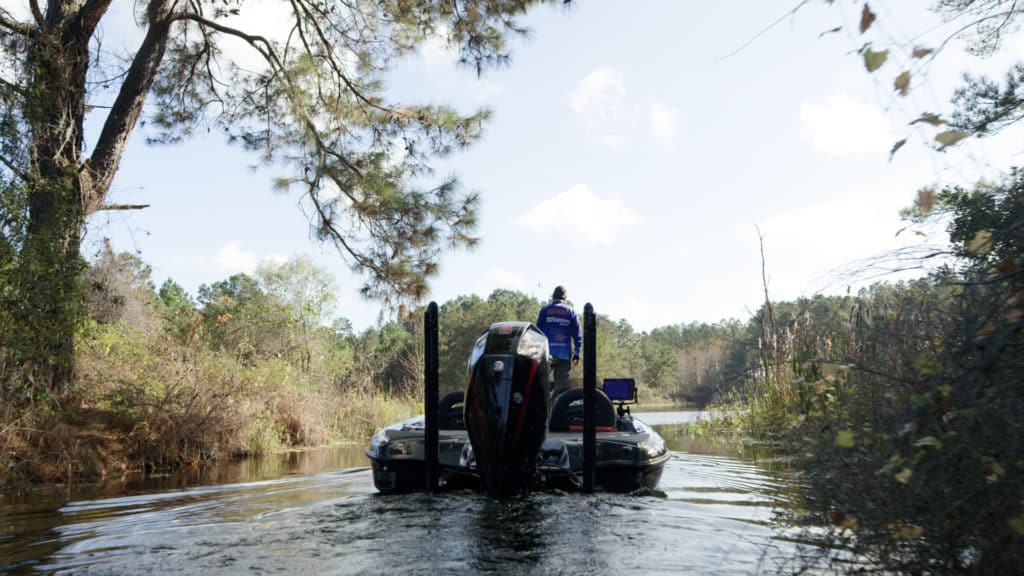
The best battery setup for your fishing boat is actually two separate batteries. This dual setup will include a starter battery, designed just for starting your engine, and a house battery to power all your other systems and devices.
→ Need a refresher? Here’s how boats have and use electricity.
When it comes to a starter battery, you should generally opt for an AGM (absorbent glass mat) one. These batteries are an improved, updated version of traditional lead-acid batteries. Rather than a free-floating electrolyte mix in between lead plates, AGM batteries use the absorbent mat to hold the electrolyte solution. As a result, they’re excellent at delivering the short but powerful bursts of energy needed to get your motor running.
For everything else, from your appliances to your navigational system or trolling motor, there’s no better choice than marine lithium-ion batteries. They simply work much better for long-drain applications and have much more power and a much longer lifespan than any lead acid alternative.
Absolutely! While they may have a higher initial price tag than old-school batteries, there’s no comparison in their versatility and features.
For one, lithium batteries are far smaller and lighter than comparable capacity lead-acid ones. This allows boat owners to either reduce their vessel’s weight or provide additional power while weighing the same.
In addition, these batteries can operate under more extreme conditions, both in terms of hot and cold temperatures and the sometimes-wild waters you’ll encounter. They also last much longer between replacements, sometimes up to a decade with a high-quality battery. This is at least two to three times as long as conventional lead-acid batteries, making the initial extra lithium cost more than even out over time.
Batteries like our Battle Born series are far safer as well offering BMS protection to keep the battery safe under all operating conditions and prevent short-circuit fires. Unlike a lead acid batteries, they also emit no hazardous gasses and contain no toxic components, meaning they can be mounted in any space.
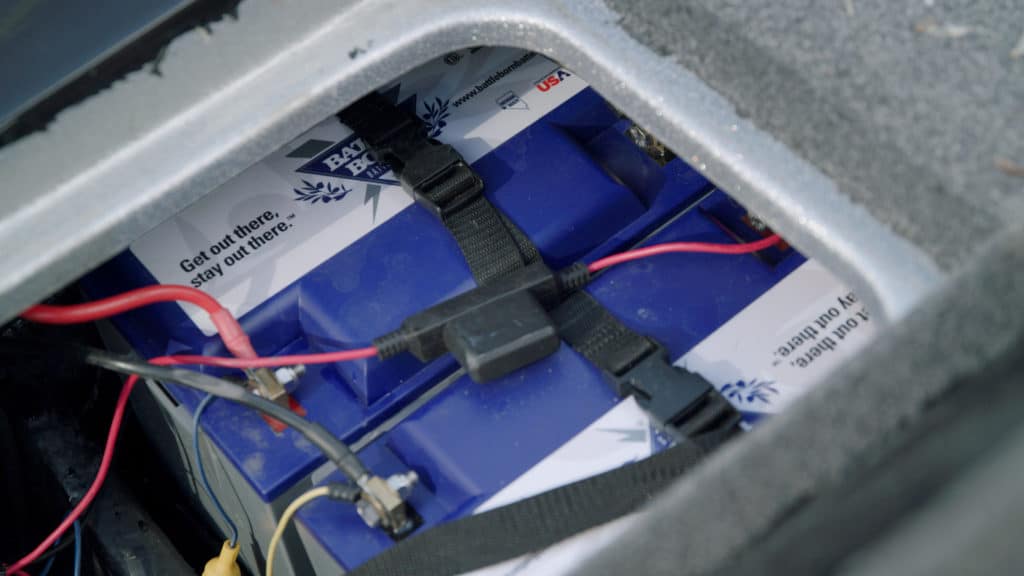
We think simplicity and reliability are key to the best battery for a boat. Our line of batteries has been field tested in thousands of customer applications and carries UL 2054 and IEC 62113 safety certificates from rigorous lab testing.
Battle Born makes a range of different lithium batteries that are excellently suited for your boat. For those looking for the most budget-friendly option, the 100Ah 12V deep cycle battery sells for less than $950 as a drop-in lead-acid replacement.
Battle Born also offers trolling motor hits, kayak fishing kits, and even heated battery kits for those who regularly fish in cold temperatures.
In some cases, they will. For boats with a trolling motor, there will generally be a bit of an increase in speed from the additional voltage of lithium under load. Especially if you’re in a kayak fishing boat.
Others may not see much of a noticeable difference. This should essentially be considered a bonus feature. Those looking to primarily speed up their boat should look for other, more significant upgrades.
Dual batteries certainly aren’t a requirement for your fishing boat battery setup. Many folks have operated for decades (or still do) with just a single battery for all electrical uses.
However, it’s always a good idea to use two or more separate batteries if possible. This allows you to separate the starting battery that cranks up your engine from the house battery that powers your lights, electronic devices, and more. It doesn’t hurt to have more power than you think you need. When it comes to boating, overshooting your power needs is probably better than underestimating them.
Exactly how your fishing boat battery setup should be wired will depend on what you’re using your batteries for. For clarity’s sake, batteries wired in parallel will increase the system’s overall capacity. This provides longer lifespans for your electronics due to the greater amp-hours available.
In contrast, batteries wired in series combine their voltages, with two 12V batteries now functioning as a single 24V source, three as a 36V source, and so on. This can be helpful for running high-voltage items like trolling motors.
Usually, the only time batteries are wired in series however is for high-power applications like large boats with large (high voltage) inverters, or 36 to 48-volt trolling motors. Otherwise, they should be wired in parallel to increase capacity.
→ Dive Deeper: Should your batteries be wired in series or parallel?
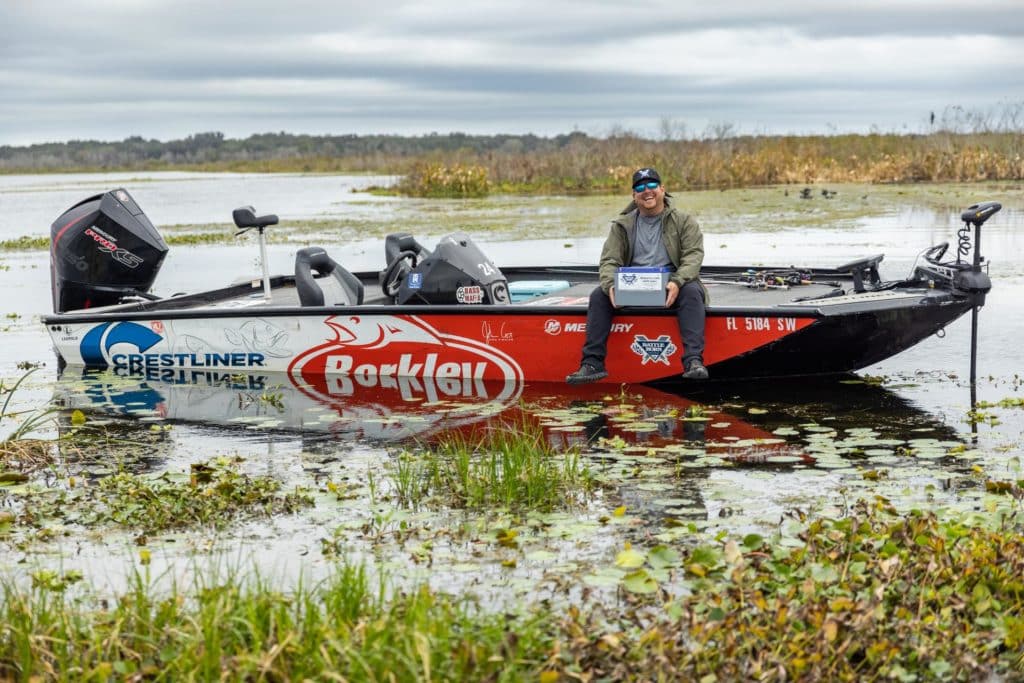
→ Want to use the same battery setup as the professionals? Pro Bass Fishermen choose lithium.
First, it’s crucial to understand exactly what cold cranking amps (CCA) refers to when it comes to a battery. The measurement tracks how much current a battery can provide over 30 seconds at 0 degrees Fahrenheit. Your engine will also have a designated number of amps it needs to get started.
In order to ensure your engine always gets going, even in freezing temperatures, your battery’s CCA rating should comfortably exceed your engine’s requirements. Since there’s no quick, one-size-fits-all answer, you should consult your engine manufacturer if you need to find your particular starting power needs.
MCA is short for marine cranking amps, a slightly different concept than cold-cranking amps. As the name suggests, it’s used primarily for boats or other water-based uses. Therefore, land-based battery buyers can generally ignore MCA ratings. It’s one of several alternative ratings, which also include HCA (hot cranking amps), measured at 80 degrees Fahrenheit.
These two concepts are similar but have one important difference that should make sense on an intuitive level. Instead of measuring the amps produced by the battery at zero degrees, MCA measures the amperage at 32 degrees Fahrenheit, the freezing temperature of water. This is because most boats typically won’t be out on the water when it’s below 32 degrees Fahrenheit. This is for reasons of both comfort and practicality. Many lakes and rivers may freeze over at those temperatures.
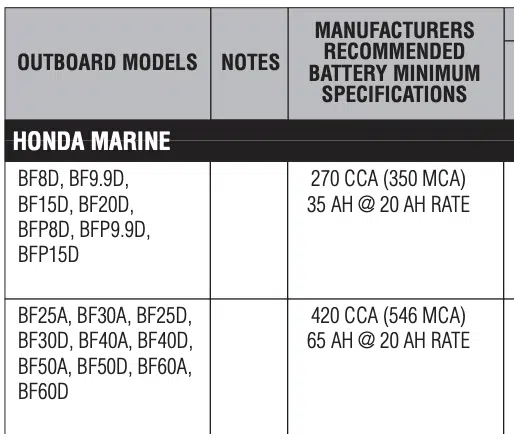
While there are many different needs and many different potential fishing boat battery setups, the top choice should be clear. Using multiple batteries and splitting up your starting and house batteries is the most straightforward way to ensure you always have the energy you need, produced in the most efficient way.
There’s no limit to the voltage or capacity you can build with different series and parallel wiring setups, allowing you to take these basic principles and design the perfect system for you. Don’t be afraid to try a couple of different things and see what works best for you. This isn’t a one-size-fits-all sort of solution. After all, there’s no single best fishing boat battery setup — just the best one to meet your needs!
We know that building or upgrading an electrical system can be overwhelming, so we’re here to help. Our Reno, Nevada-based sales and customer service team is standing by at (855) 292-2831 to take your questions!
Also, join us on Facebook, Instagram, and YouTube to learn more about how lithium battery systems can power your lifestyle, see how others have built their systems, and gain the confidence to get out there and stay out there.
Shop Best Sellers

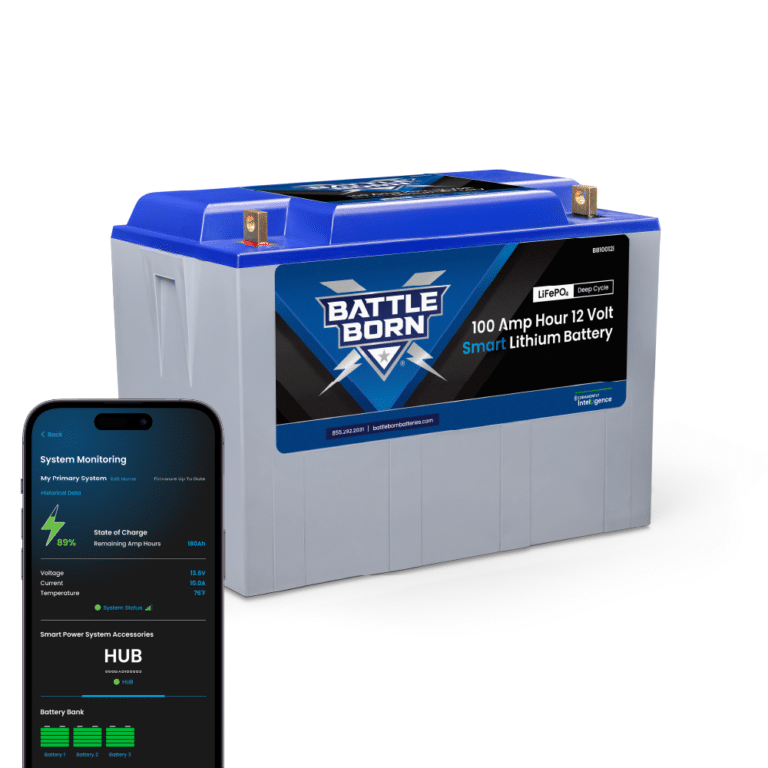

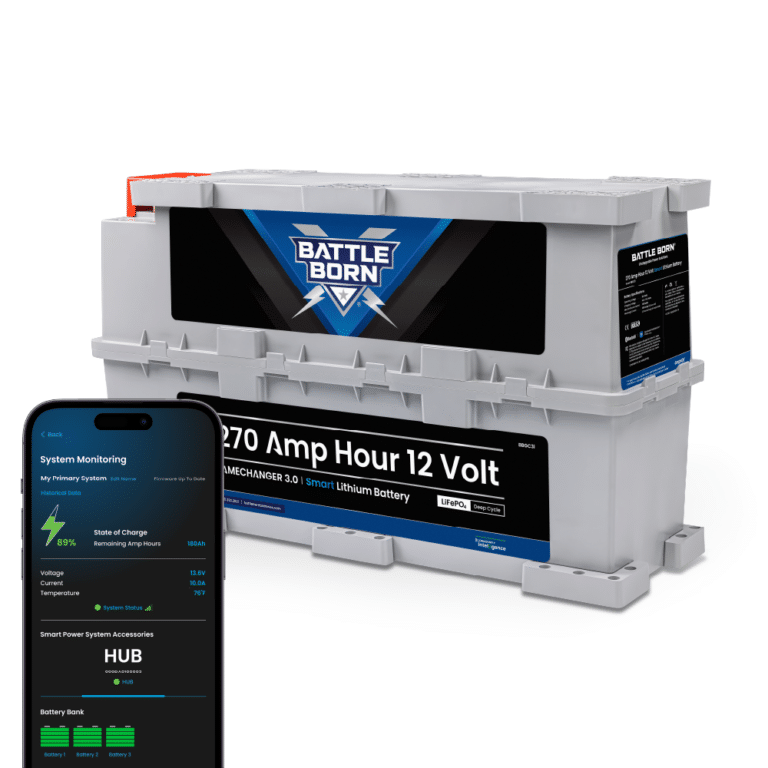




Ask a technical specialist now at 855.292.2831
Stay in the Know